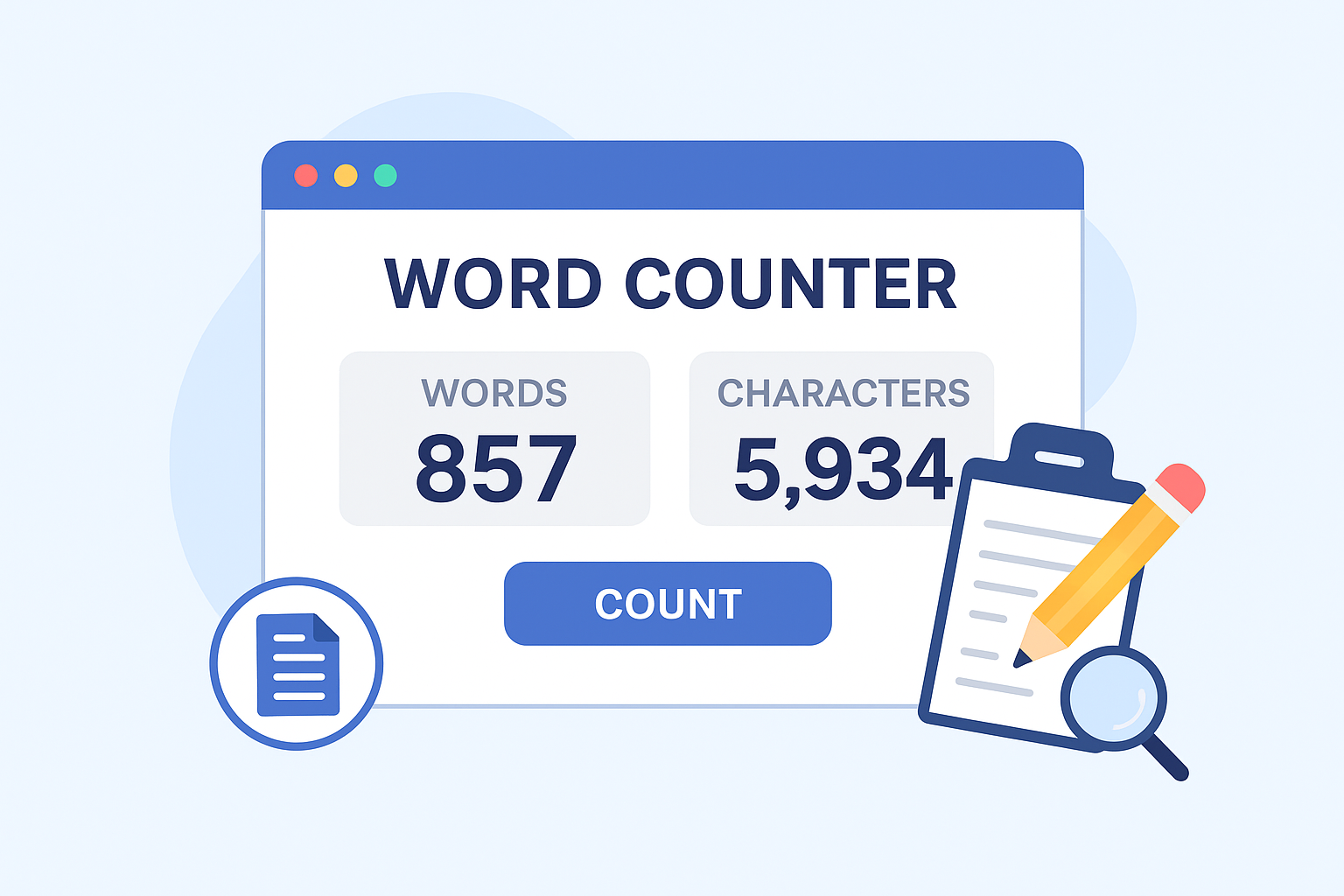Words
0
Characters
0
Sentences
0
Paragraphs
0
Text Analytics
Reading Time
0 min
Speaking Time
0 min
Longest Word
-
Word Density
-
Readability Statistics
Flesch Reading
0
Flesch-Kincaid
0
Gunning Fog
0
Words/Sentence
0
Real-time Analysis
Get instant statistics as you type with advanced text processing
Comprehensive Metrics
Track words, characters, sentences, reading time, and text analytics
Privacy Focused
Your text is processed locally and never leaves your browser


